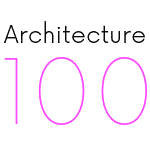You could increase the chances of a successful planning application by taking pre-application advice.
Pre-application advice, or ‘pre-app’ in planning parlance, is a function within the planning process that allows homeowners to seek advice and feedback about a proposed scheme from a Planning Officer before an application is formally submitted.
Requesting a pre-app is straightforward. After filling out an online form on the local authority’s website, you will be assigned a Planning Officer who’ll look over your proposed scheme. Some local authorities will share their thoughts by phone, others in writing, but most effectively, will do so face-to-face either at their premises or your home.
A pre-app could increase the chances of a successful application.
Opting to take pre-application advice signals that you are seeking a collaborative approach to working with the planning office. All too often Planners pick up ill-thought out proposals that don’t meet the planning criteria. To a professional and qualified Planner who has spent years honing their skills, this can come across as lazy, incompetent or just plain arrogant. Whichever it is, it’s not a good way to start a relationship. However in seeking out their opinion before penning a formal application, you are acknowledging their subject matter expertise. Imagine taking a that little black dress the Tailor alteration, and as you drop it off you compliment him on what a great job he’s done on that finely cut suit he’s wearing. He’ll want to demonstrate that same level of craftsmenship for you and it sets up a cordial relationship.
Moreover where the assigned Planning Officer adopts a solution-seeking mindset, they position themselves more in support of the scheme every piece of advice offered because they are telling you how they’d like to see the proposal presented.
Pre-apps are great at highlighting any immediate red flags. For example if your property sits in an area known to support a protected species (like bats), it could kibosh your plans and you would be advised to stop before spending any more time and money on the proposal.
Pre-apps held in home could serve an emotive purpose. Although it doesn’t officially feed into the decision-making process, seeing the applicant’s ‘natural habitat’ showcases the human story behind the drawings and this could facilitate for a more fluid exchange of ideas during discussions.
A handy side effect of pre-apps are that they open up a direct line of communication between your Architect and the Planning Officer. In the course of emailing over sketches and elevation plans to the assigned Officer, you may decide to drop in another cheeky query here or there, such as their preference of window opening mechanisms for example. Every crumb of feedback will help your planning application.
Lastly pre-apps represent an opportunity to ask the Planners of any further supporting evidence they’d like to see that could support the application. For example where a proposal includes a glass balustrade, supplying a sample of frosted glass may serve to allay any concerns around privacy they harbour.
On the flip side pre-apps do have their drawbacks.
They can be expensive, costing many times more than the application fee itself in some parts of the country.
You could also get the same advice for free, kind of. Firstly, most planning departments have a Duty Planner on stand where you can book an advice slot for a few minutes and see think of your proposal. You may get a useful nugget of feedback but don’t expect anything weighty after a consultation that last only a few minutes. Secondly, there is a feedback loop built-in to the planning process. If you submit a largely acceptable proposal but the assigned Planning Officer sees an obvious an of improvement that would benefit your planning application, you would be allowed a ‘free go’. This would allow you to amend the proposed plans with feedback provided and resubmit, without having to start over.
Don’t expect any cast-iron guarantees of support, no matter how enthused the Planning Officer seems. They will use non-committal language when airing their thoughts. Words like ‘could’; should’; ‘may’; ‘possibly’ and ‘likely’ are tip of tongue. It means there is never any feedback you can hold them to should you not get the result you were hoping for. In fact this level of repudiation is consecrated in a cheeky get-out clause. Any pre-app advice given, remains the sole opinion of the advising Officer, not of the local authority, and this leaves the door open for Planners to change their mind.
This is compounded by the fact that the Planning Officer assigned for the pre-app may not necessarily be the same Officer assigned to assess your full application once it is submitted.
Finally, pre-app advice can have a sting in its tail. It can have a detrimental affect to the proposal if the feedback offered by the advising Officer is not acted upon. If you go ahead and do what the Planner has suggested you don’t do, you will need to provide sound justification why you chose to ignore the advice.
In summary although it doesn’t provide a guarantee of outcome by any stretch of the imagination, taking pre-application advice from the planning department can be a valuable tool in increasing the chances of success of your planning application.
If you would like some free planning advice, get in touch with us.
